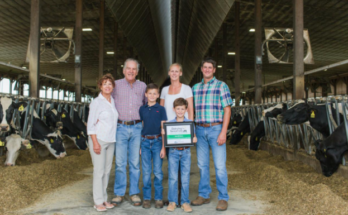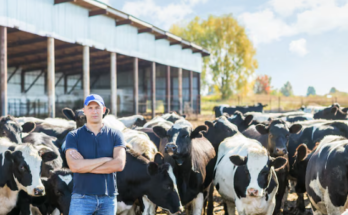Ducks – Raise ducklings from small to mature

### Raising Ducklings: A Comprehensive Guide for Farmers on Duck Farming Success
Raising ducks is an increasingly popular agricultural endeavor, particularly for farmers seeking diversified sources of income. Duck farming can be a rewarding venture, with ducklings raised for both meat and egg production. However, as with any farming operation, it requires careful financial planning, strategic budgeting, and staying informed on market trends. From the initial purchase of ducklings to the day they reach maturity, managing costs and resources efficiently is key to ensuring success.
### Spending and Budgeting for Duck Farming
Duck farming, like any livestock farming, comes with its own set of financial challenges. The costs start with purchasing ducklings, which can vary depending on breed and quantity. Farmers also need to budget for feed, which is one of the largest ongoing expenses. Ducks require specialized feed at different stages of growth, with younger ducklings needing higher-protein feed to support their rapid development. As the ducks mature, their feed needs change, and farmers must adjust accordingly.
In addition to feed costs, farmers must also account for expenses related to housing, equipment, and healthcare. Ducks need clean, secure housing to protect them from the elements and predators. Depending on the size of the operation, this could mean building large coops or small, portable shelters. Additionally, farmers need to invest in water systems, as ducks require access to fresh water not just for drinking but also for bathing and cleaning.
Another key expense is veterinary care. Although ducks are generally hardy animals, they can still be susceptible to diseases and infections, so regular health checks and vaccinations are necessary. Farmers must also set aside funds for any unexpected veterinary bills or the cost of replacing sick or injured animals.
While initial and operational costs can be substantial, duck farming offers opportunities for profitability. Farmers who sell eggs can generate income consistently, while those raising ducks for meat often see returns after just a few months of growth. To maximize their earnings, many farmers focus on niche markets such as organic, free-range, or heritage duck breeds, which can command higher prices.
### Release Date of Market Reports and Financial Insights
The financial success of duck farming is closely tied to market conditions, and farmers rely on industry reports and insights to guide their decision-making. The USDA and other agricultural organizations regularly release reports on poultry markets, including duck production. These reports provide data on prices, production forecasts, and consumer demand, allowing farmers to plan their budgets more effectively. For instance, if demand for duck meat is expected to rise due to seasonal trends or market shifts, farmers can adjust their production schedules and pricing strategies accordingly.
Farmers also keep an eye on trends in consumer preferences. In recent years, there has been an increasing interest in alternative proteins and ethically raised livestock. Ducks, especially those raised on pasture or in free-range systems, can meet this demand and provide farmers with a competitive edge. By keeping abreast of market trends and consumer behavior, farmers can position themselves to take advantage of emerging opportunities.
### Support and Resources for Farmers
There are numerous resources available to duck farmers that can help them manage their budgets and improve operational efficiency. Local agricultural extension offices, for example, offer advice on everything from nutrition and breeding to disease management. In addition, websites like the American Poultry Association (APA) and Ducks Unlimited provide valuable information and resources for farmers.
Farmers also have access to various financial assistance programs. The USDA offers grants, loans, and insurance options for poultry farmers, which can help with startup costs, equipment, or unforeseen emergencies. Furthermore, regional co-ops and farmer networks offer opportunities for knowledge-sharing and bulk purchasing, which can help reduce costs on supplies like feed or bedding.
### Conclusion
Raising ducks, from ducklings to mature birds, requires careful financial planning and attention to market conditions. With the right approach to budgeting and resource management, farmers can see success in both meat and egg production. By staying informed on market trends and taking advantage of available resources, duck farmers can not only sustain but grow their operations for long-term success.



